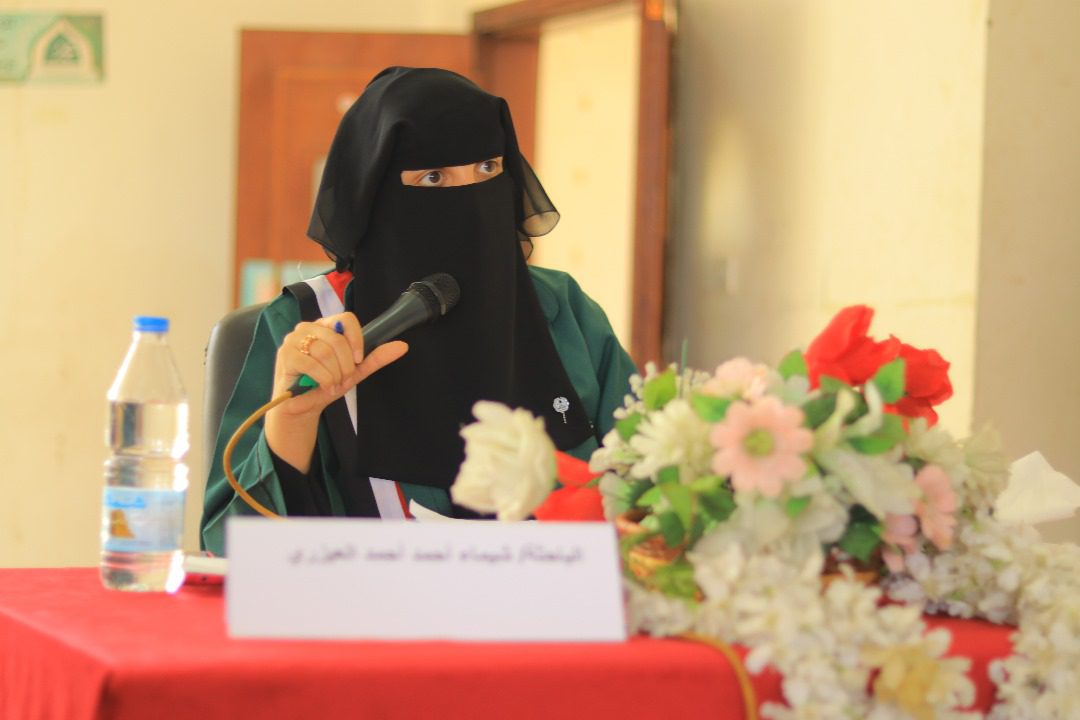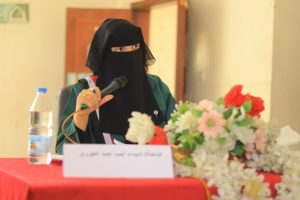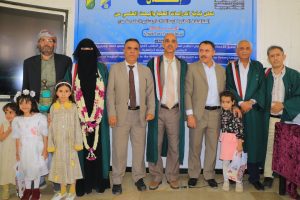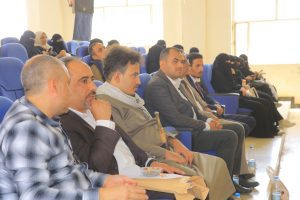Master’s Degree for Researcher Shaimaa Alaizri from the English Department, Faculty of Languages
- Posted by كلية اللغات جامعة الصنع
- Categories news
- Date May 16, 2025

Master’s Degree for Researcher Shaimaa Alaizri from the English Department, Faculty of Languages
Researcher Shaimaa Ahmed Ahmed Alaizri has been awarded a Master’s degree with a grade of 90% (Excellent) from the English Department, Faculty of Languages at Sana’a University for her thesis entitled: “An Analysis of Pragmatic Errors in Written Speech Acts of Request Made by Yemeni University Students of English” The Viva defence took place on Wednesday, 16th of Dhu al-Qa’dah 1446 AH, corresponding to May 14, 2025 AD.
The Viva and evaluation committee consisted of:
* Assoc. Prof. Abbas Abdulmalek Mutahhar – Internal Examiner – Sana’a University – Chairperson.
* Assoc. Prof. Ahmed Abdullah Alhusami – External Examiner – Thamar University – Member.
* Assistant Prof. Ali Abdullah Alghail- Supervisor – Sana’a University – Member.
The study aimed to:
* Analyze the pragmatic linguistic errors in the written-request speech act among undergraduate English language learners.
* Explore the strategies used in formulating the written request speech act among undergraduate English language learners.
* Provide a pragmatic analysis of the reasons for pragmatic linguistic errors in the request speech act among undergraduate English language learners.
The study revealed the following conclusions:
* Pragmatic linguistic errors committed by English language learners includes inappropriate use of lexical (38%), followed by syntactical errors (34%), while semantic errors came in third place (28%).
* The results reveals that the majority of request strategies used by the participants fall under the category of “Conventional Indirect Request,” which accounted for 70.7% of the total request strategies.
* Results also reveals the impact of the learners’ mother tongue, which had a significant effect on committing these pragmatically-oriented errors.
* Inappropriate teaching methods, limited exposure of students and their teachers to the target language, and curricula are also major causes of pragmatically-oriented linguistic errors.
* The study’s findings provides insightful perspectives in pragmatics, which can be of additional value to learners, teachers, and curriculum designers alike.
The study concludes with a number of recommendations, the most important of which are:
* Enhancing students’ awareness of cultural differences in the speech act of request in English.
* Comparing how expressions are used in their mother tongue and the English language.
* Providing realistic dialogues by teachers that demonstrate the actual use of the language.
* Encouraging teachers to conduct role-plays and simulations to practice using the English language in different contexts.
* Highlighting the differences between the students’ language and the target language.
The Viva was attended by a number of academics, researchers, students, interested individuals, and a number of the researcher’s colleagues and family members.







